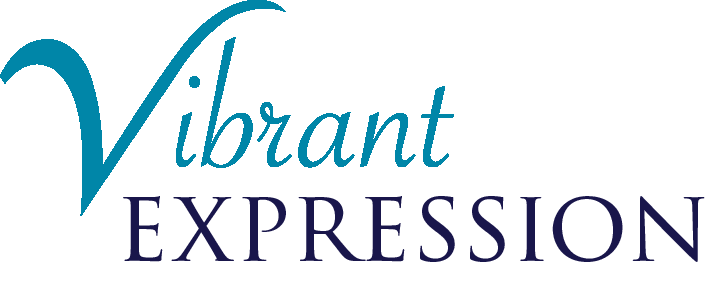[separator top=”15″]
[one_fifth last=”no”]

[/one_fifth]
[four_fifth last=”yes”]
Robert Kiyosaki has opened my mind to a new way of thinking about my finances. Becoming wealthy simply requires a completely different mindset, and some financial literacy. Simplified diagrams, positive examples, and explanations of confused thinking help to clarify the differences in perspective between someone who accumulates wealth and someone who doesn’t.
This isn’t really a “how to” book, but a description of a new paradigm, with enough specific information to inspire further research. It is an encouraging starting point.
[/four_fifth]
[separator top=”15″]
[separator top=”-10″]
| Change "I can't afford it." to "How can I afford it?" Keep thinking. Money is one form of power. Even more powerful is a financial education. Money comes and goes, learn how money works to build wealth. Be decisive. Opportunities come and go. Know when to make quick decisions. Life teaches us by pushing us around, learn the lesson & move on. Stop blaming, playing safe, and thinking the problem is outside of you. Take responsibility for your life. Take risks. Change yourself. True learning takes energy, passion, a burning desire. Passion is anger and love combined. Use it to fuel your resolve. ❶ Don't work for money. Learn to have money work for you. Working for money = waiting for a paycheck or a "big break," or thinking more money will solve the problem. Most people want to play it safe and feel secure. (Fear based.) Then, more money leads to desire and more spending. (Greed.) Tell yourself the truth about how you feel, confront the fear. Expand your point of view. Being rich does not solve the problem. Master the power of money. Don't be afraid of it. Money is an illusion. A job is a short-term solution to a long-term problem. Intelligence solves problems and produces money. Work for free, use your brain, look for opportunity. ❷ Financial Literacy is key. To be rich, you need to be financially literate. It is not how much money you make; it is how much you keep. Rule #1. Know the difference between an asset and a liability. Assets put money in your pocket. Liabilities take money out. Profit & Loss Statement = Income and Expenses. (Money in, money out.) Balance Statement = Assets vs Liabilities. Wealth is the measure of cash flow from assets vs expenses. Cash Flow = the story, told by the numbers, of where cash flows. Highest expenses are taxes, then mortgage and CC debt. Assets… Stocks, Bonds, Mutual Funds, Notes (IOUs) Businesses, Real Estate, Intellectual Property … generate Income Profits, Dividends, Interest, Rental Income, Royalties A home is a liability, not an asset. Assets must have value, produce income or appreciate, and have a ready market. Buy assets that you love that will generate cash flow. If you don't love it, you won't take care of it. | ❸ Mind your own business. This is not "start a company" (most fail within 5 yrs). Keep your job, build your investment portfolio first. Buy businesses that don't require your presence, else it is a job. Real Estate – start small, keep trading up. (1031 = defer taxes) Once a dollar goes into the asset column, never let it come out. It becomes your employee. ❹ Taxes, your biggest expense. Read Inc and Grow Rich (book). Own a corporation to protect assets. Corporation = a legal document (not an entity). Know the law. Financial IQ = knowledge in four broad areas: 1) accounting (Financial Literacy) 2) investing (Strategies & Formulas) 3) understanding markets (Supply and Demand) 4) Law (Tax advantages, protection from lawsuits) ❺ Invent Money. Be creative. Look for opportunity. Learn to manage risk. Packaged investments = mutual fund, REIT, stock, bond Create investments (skills needed) - Find an opportunity others missed - Raise money (buy houses w/o a bank) ❻ Work to Learn. Take jobs to develop the skills you need: learn to manage cash flow, systems (your time), and people, sales (communication) and marketing. Most important Law of Money = "Give and you shall receive." Note: this is not "give in order to receive," which doesn't work. Overcome Obstacles to build an abundant asset column: 1. Fear. To play safe, start early and focus your investments. 2. Cynicism. Analyze instead of criticize. Do due diligence. 3. Laziness. Develop a little greed to inspire you. 4. Bad Habits. Pay yourself first, let the pressure from bills become your motivation to earn more. 5. Arrogance. Used to hide ignorance. Find a book or mentor. Financial Genius requires technical knowledge and courage. Awaken your Financial Genius: Step 1. Create a reason greater than reality. (your motivation) Step 2. Choose daily. (The Power of Choice) Step 3. Choose your friends carefully. (avoid nay-sayers) Step 4. Master a formula, then learn a new one. Step 5. Pay yourself first. Step 6. Pay your brokers well. Step 7. Be an "Indian Giver." (loan $, get it back, reinvest) Step 8. Let your assets buy your luxuries. Step 9. Find a hero. Step 10. Teach, and Learn. Give and Receive. |
